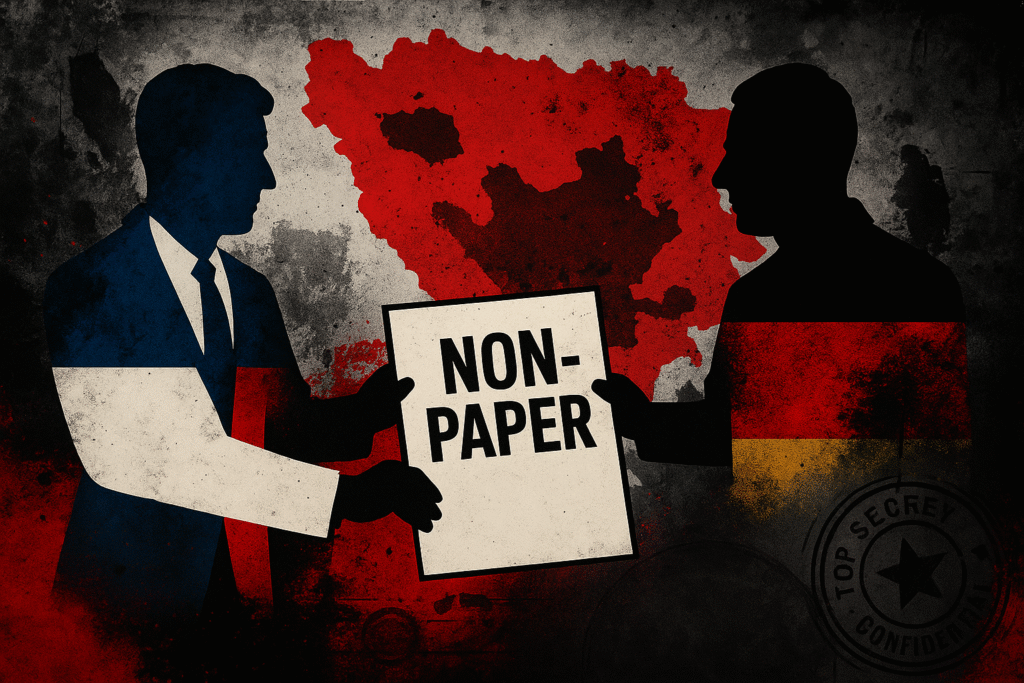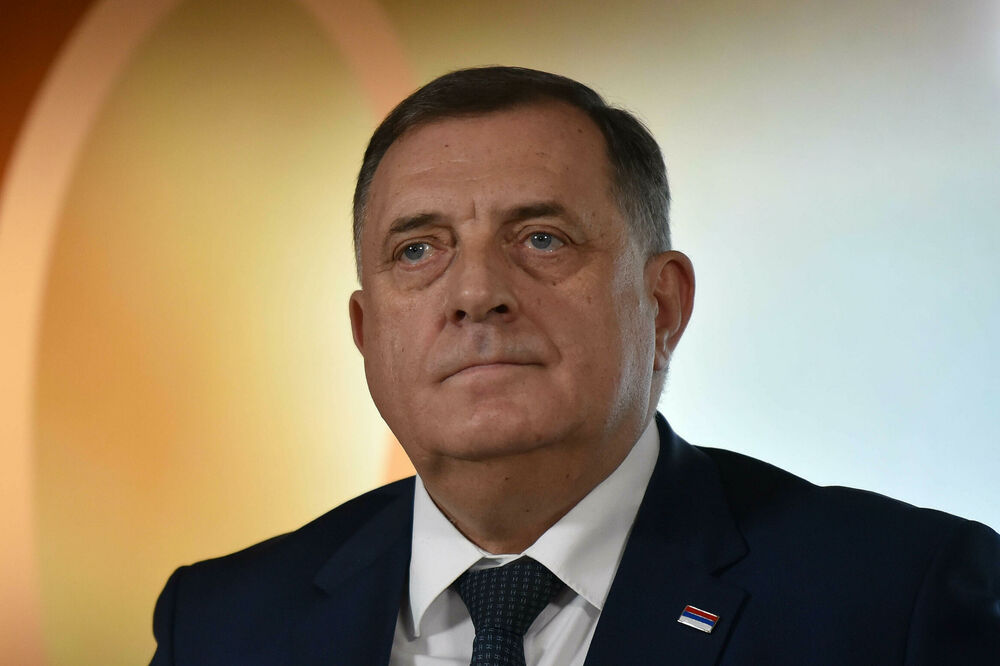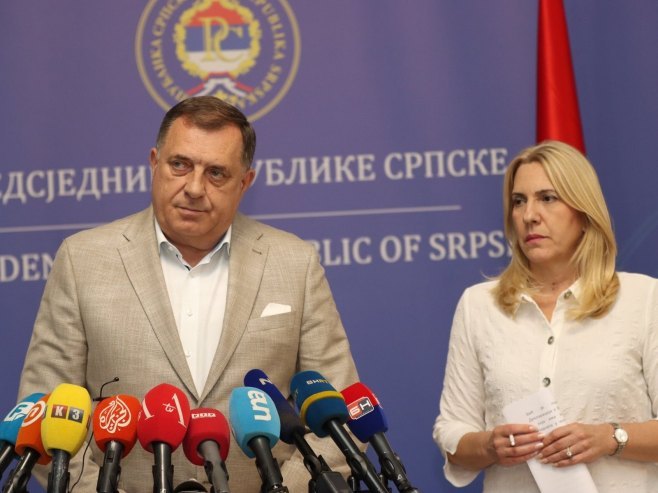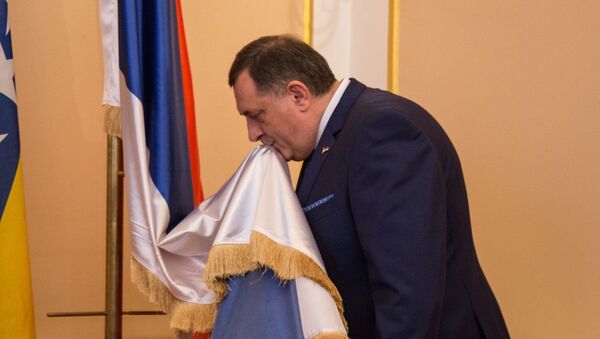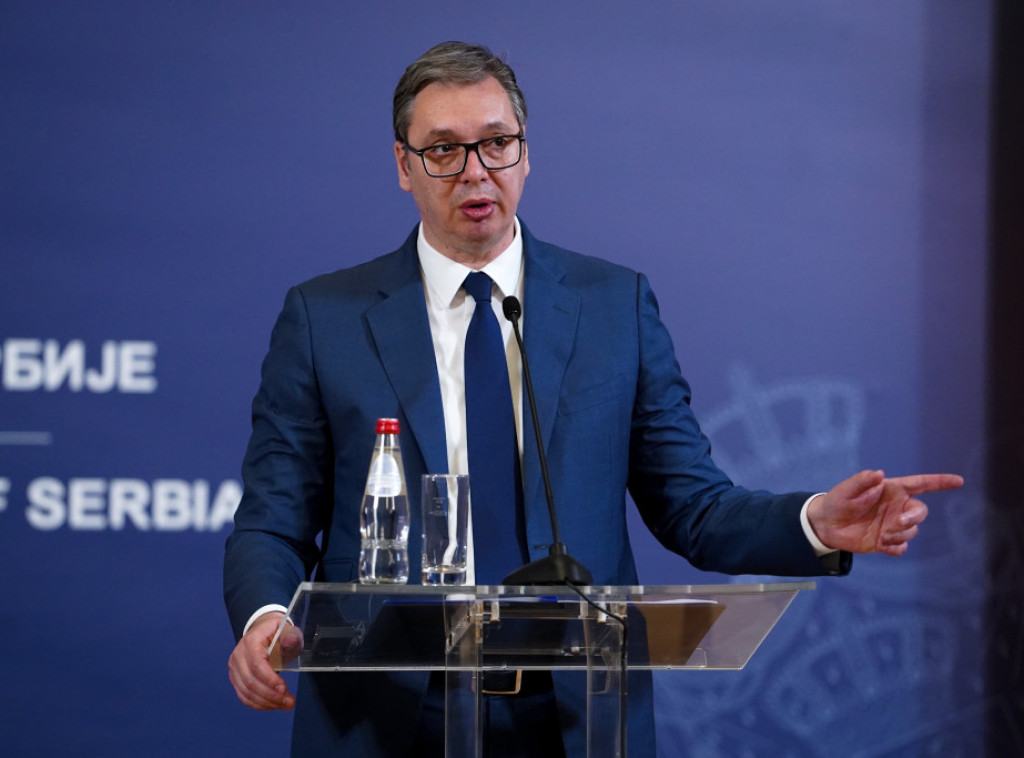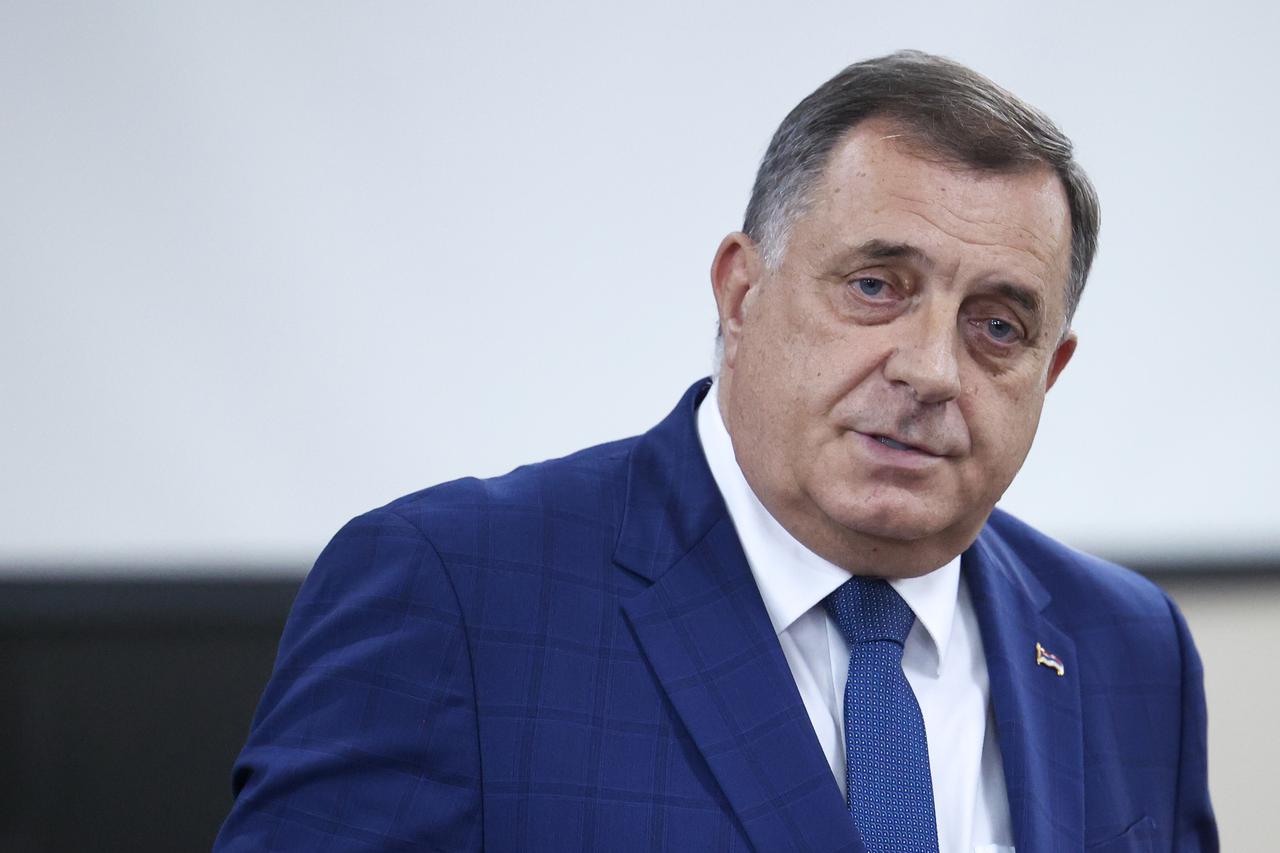Germany and France have drafted a so-called non-paper concerning Bosnia and Herzegovina, which in reality constitutes an attack on Republika Srpska, Sputnik confirmed today. According to sources, the document is dated May 12 and is titled “Responses to the attacks of Republika Srpska on the constitutional order of BiH.”
As announced today following the session of the National Security Council, the President of Serbia, Aleksandar Vučić, informed Council members about the document prepared by France and Germany, which has been described as worsening the position of Republika Srpska.
Sputnik has learned that the non-paper calls for isolating the leadership of Srpska and for the imposition of financial sanctions on Srpska and political sanctions on individuals avoiding prosecution—at the level of the EU.
Notably, the so-called High Representative Christian Schmidt has been invited to take action.
The document was distributed under the title: “Responses to the attacks of Republika Srpska on the constitutional order of BiH.”
The contents of the non-paper are published below:
This is an updated document originally submitted on November 3, 2023, and written in light of the conclusions of the Political and Security Committee (PSC) agreed on March 26, 2025, which paved the way for further active engagement by EU Member States regarding the ongoing crisis in Bosnia and Herzegovina.
Justification
The current constitutional crisis in BiH represents the gravest challenge to the country’s sovereignty, unity, and functional and territorial integrity in the 30 years since the signing of the General Framework Agreement for Peace. In recent weeks, the actions and legal measures taken by Republika Srpska following the first-instance verdict against President Milorad Dodik on February 26, 2025, have amounted to open attacks on BiH’s constitutional order.
Specifically:
- Decision on measures and tasks stemming from unconstitutional decisions and actions of BiH institutions, dated February 26, 2025
- Law on the High Judicial and Prosecutorial Council of Republika Srpska, dated February 27, 2025
- Law on the non-application of laws and prohibition of actions of unconstitutional BiH institutions (Court of BiH, Prosecutor’s Office of BiH, SIPA) in Republika Srpska, dated February 27, 2025
- Amendments to the Criminal Code of Republika Srpska, dated February 27, 2025
- Law on the special register and transparency of non-profit organizations, dated February 27, 2025
- Draft Constitution of Republika Srpska, dated March 13, 2025
- Law on the protection of the constitutional order of Republika Srpska, dated March 13, 2025
The European Union and its Member States have, in various formats and individually, unequivocally condemned these actions, describing them as a threat to the country’s institutions and to the fundamental freedoms of its citizens. These acts contradict BiH’s commitments on its path toward the EU, just one year after the European Council’s decision to open accession negotiations with Bosnia and Herzegovina.
In its conclusions from December 17, 2024, the EU addressed potential responses to actions and actors undermining BiH’s constitutional order, sovereignty, territorial integrity, and international legal status. The EU emphasized the need to assess all available options and serious consequences through its policy tools.
The EU reaffirmed its continued commitment to the Dayton and Paris General Framework Agreement for Peace and the constitutional order of BiH. Moreover, the EU reiterated its responsibility for stability and peace in BiH and the Western Balkans region.
Objective
Local responsibility for peacefully resolving the crisis remains key. Local authorities and their actions must manage the situation. External influence should be limited.
The EU’s objective remains to help preserve and build a peaceful, stable, sovereign, and independent, functional European state of Bosnia and Herzegovina—one that adheres to its obligations toward the principles and values on which the EU, democratic societies, and the rule of law are founded, and toward BiH’s future within the European Union.
The immediate objective is to repeal unconstitutional laws and withdraw the new draft constitution. All options must be explored to achieve this.
A lasting resolution to the crisis will require, in particular, the full and irreversible return of Republika Srpska to the constitutional order of Bosnia and Herzegovina, the renewed commitment of Bosnian Serbs to the proper functioning of state institutions, and their full alignment with the relevant steps set out in the Commission’s recommendation of October 12, 2022, for progress in the EU accession process.
Next steps
The following actions should be included in the EU’s toolbox:
1) Financial support
All projects that directly or indirectly benefit Republika Srpska under the Western Balkans Investment Framework should be suspended. Member States, in coordination with the Commission, should explore the possibility of terminating two suspended projects. The Commission should refrain from proposing new projects that benefit Republika Srpska. Criteria have been developed for lifting these measures once the leadership of Republika Srpska takes constructive steps. Member States must be consulted in advance.
The EU should reach out to other relevant international financial institutions, such as the World Bank, to ensure they adopt a similar approach.
Bilateral financial aid for projects directly or indirectly benefiting Republika Srpska should be suspended.
2) Sanctions
The EU should consider targeted use of the framework for restrictive measures (Council Decision 2011/173/CFSP) in light of the situation in Bosnia and Herzegovina, by adopting restrictive measures against individuals.
Proposals from the High Representative/Vice President are expected in the coming weeks.
In the absence of EU-level consensus, national measures—including targeted individual measures such as national travel bans—should be examined and coordinated among Member States. Adoption of such measures by individual EU Member States should be accompanied by local solutions, which should remain a priority. National measures are temporary and reversible sanctions aimed at changing the behavior of targeted entities and individuals.
3) Enlargement
The EU and its Member States should underline that Republika Srpska’s actions contradict BiH’s European path and the interests of its citizens, including those of Republika Srpska. Progress in the accession process will depend on the implementation of required steps outlined in the Commission’s recommendation of October 12, 2022. At the same time, the EU and its Member States should direct public communication to highlight the benefits of European integration.
4) Contacts with RS officials
EU and Member State communications directed at officials of the RS government or SNSD should focus on emphasizing the risks of further pursuing the unconstitutional course of RS President Dodik. These communications should include messages that the EU is open and willing to ease tensions as soon as policy changes become evident, along with engagement with RS opposition and civil society. High-level contacts with convicted or indicted RS officials (M. Dodik, R. Stevandić, and N. Višković) should be suspended, the document concludes.
Source: Sputnik Srbija



